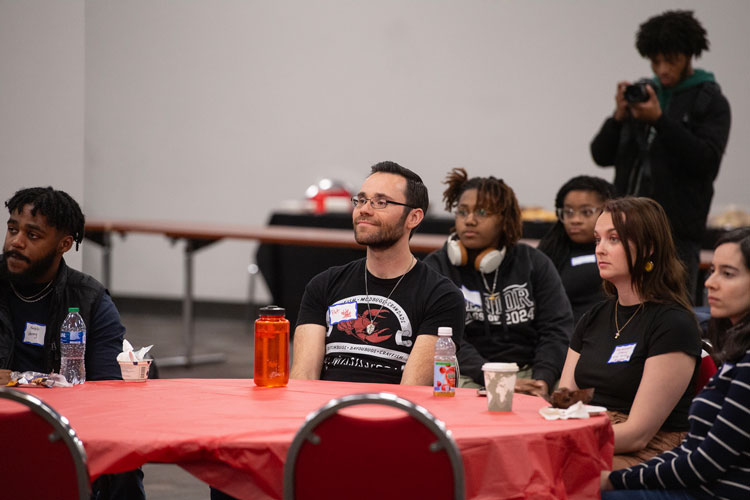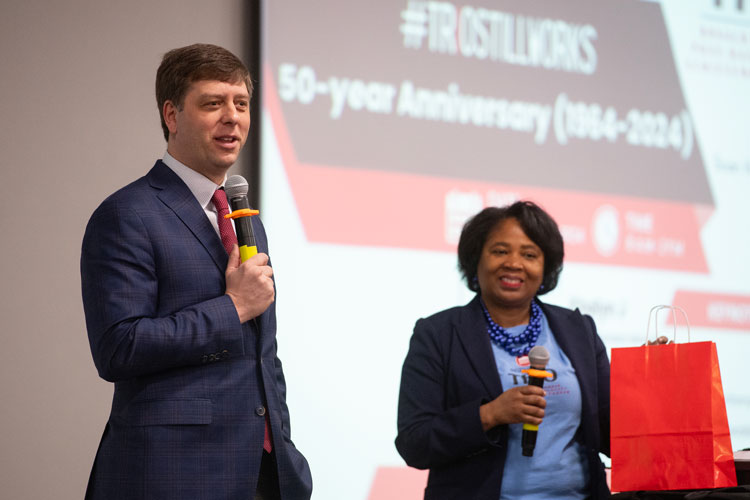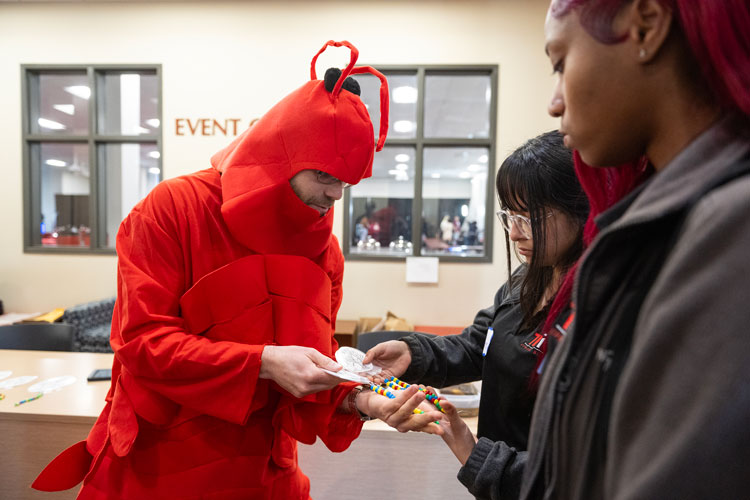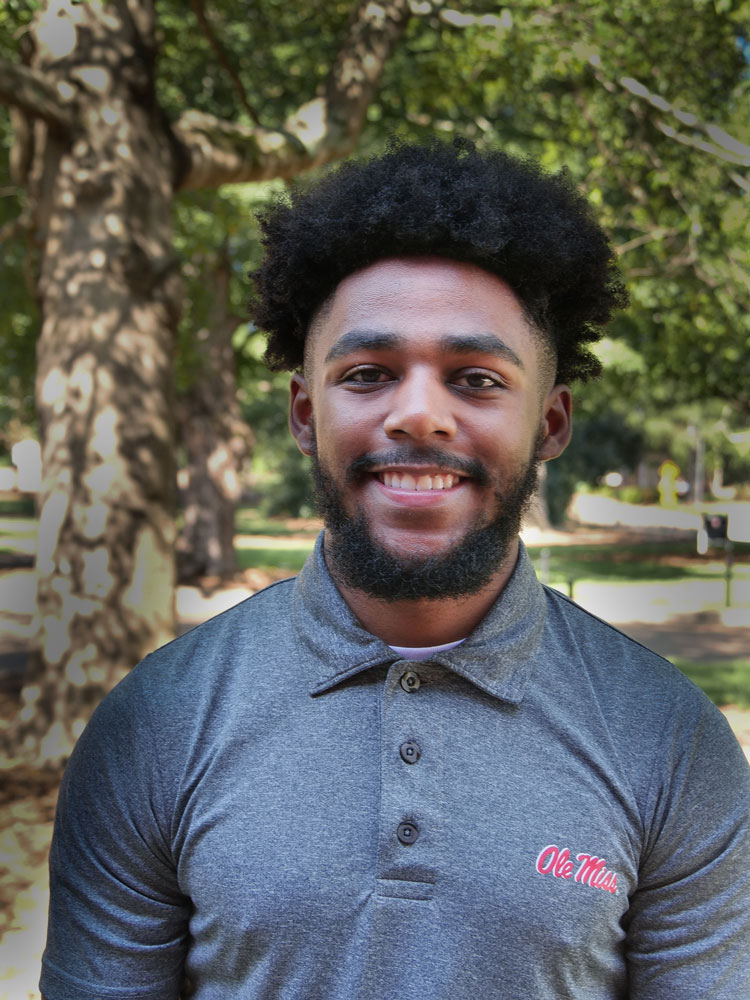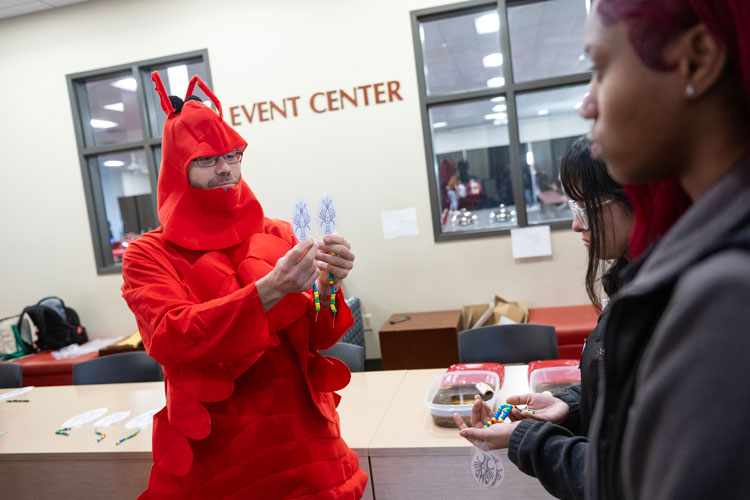
More than 60% of UM McNair participants go on to graduate school
Nearly three decades after it was founded, a recruiting program honoring an astronaut killed in a space shuttle explosion has quietly helped more than 70 underrepresented students earn their doctoral degrees at the University of Mississippi.
Murrell Godfrey, assistant graduate dean for diversity, equity and inclusion in the UM Graduate School and director of the Ronald E. McNair Post-Baccalaureate Achievement Program, wants to boost those numbers.
“Over 60% of McNair program bachelor’s degree recipients are accepted and enrolled in a graduate program of study by the fall term of the academic year immediately following the completion of the bachelor’s degree,” Godfrey said.
“The McNair Scholars Program’s goal is to increase graduate degree awards for students from underrepresented segments of society.”
The U.S. Department of Education established the program, named for Ronald McNair, the physicist and astronaut who died in the 1986 Challenger explosion, in 1995. It recruits first-generation, low-income students, as well as students from underrepresented groups in graduate studies, who demonstrate strong academic potential.
McNair students benefit from academic services within the McNair program that increase their chance for success, including academic counseling; interaction with faculty and graduate student mentors; assistance with graduate school admissions, financial aid applications and GRE preparation; and the chance to attend professional meetings, visit grad schools and present research at national conferences.
Achieving a doctoral degree is no small feat and accomplishing that goal benefits not only the graduate but also their families and communities, said Barbara Howard, the program’s associate director.
“Less than 2% of the American population have obtained a doctorate,” she said, adding that when that percentage is broken down based on first-generation and low-income students, the numbers shrink drastically.
McNair Students
Ole Miss administrators select about 30 students for the McNair program each year. Of that group, 16 are invited to attend an intense, six-week research internship at the university that includes a generous stipend.
Harrison “Graham” Gustafson, a first-generation, Mexican American college student from Hattiesburg, said the McNair program helped him get accepted to a graduate program.
“It definitely gave me a leg up when it came to getting my name into their head, because most schools have a McNair program, and it can set you up to get in contact with their directors and their programs, and it opens more doors for graduate fellowships,” he said.
“One of the main rewards was just getting to know more people at Ole Miss, whether that’s different faculty in different areas that I wouldn’t have met through social work, as well as making friends and meeting more peers that help give you support in what you’re doing.”
Gustafson graduates in May with a bachelor’s degree in social work and is interning at Cumberland Pointe Health Campus, a long-term care facility in West Lafayette, Indiana. He plans to start a master’s in social work at the University of Illinois at Urbana-Champaign this fall.
“I think if anyone has the opportunity to do (the McNair program), it’s well worth it,” Gustafson said.
Interacting with the diverse McNair cohort is a plus, agreed Kaleb Henry, a junior biochemistry major from Waynesboro.
“We have some people who are majoring in English and literature,” Henry said. “However, you get to see all the people who may be in a field related to you, such as nursing or biology. So just having those connections, which further your progression in your undergrad years, is very helpful.
“Additionally, just being able to network (with) all the past McNair scholars, alumni; there’s just so many very influential people who have made a name for themselves that have done this program.”
Henry, who plans to go to medical school and practice in or near his hometown, has been able to conduct research in two labs at Ole Miss: the computational astrochemistry lab with Ryan Fortenberry, associate professor of chemistry and biochemistry, and a biochemistry lab with Susan Pedigo, professor of chemistry and biochemistry.
In the latter, he is helping to study cancerous pancreatic cells to “see if we can determine whether by a certain protein concentration we can help in identifying which stage the cancer is in.”
Last fall, Henry, with the help of Howard, formed the UM McNair Scholars Achievement Program, a registered student organization. Henry, who is president of the organization, said two key goals of the organization are to get McNair students to network and help them prepare for graduate school and their careers.
One of Henry’s first duties as president was to help plan and host National Trio Day February 24 on the Oxford campus. The university hosted the event for the first time, gathering students from TRIO programs across the state and partnering with the NASA-funded Mississippi Space Grant Consortium to present career exploration sessions.
The McNair program is one of eight Department of Education-funded TRIO programs, which are designed to identify and serve individuals from disadvantaged backgrounds. UM and partner institutions Alcorn State University, Rust College, and Tougaloo College operate one of three McNair programs in Mississippi. More than 200 McNair programs operate across the U.S.
A Success Story
The program’s administrators are happy to have invested in the lives of those who are equipped to contribute to their communities because of the degrees they hold, Howard said.
Maria Jones-Muhammad exemplifies the program’s impact. She earned a doctorate in neuroscience from the University of Mississippi Medical Center last year and began a postdoctoral stint in the neurobiology department at the University of Alabama at Birmingham.
Jones-Muhammad got a transition grant called an F99/K00 award, which provides funding for a project of her choosing during postdoctoral training. She wrote to Godfrey about her success after graduation:
“I was able to write my F99/K00 project because of the training that I received in your lab while in McNair, which was focused on understanding the cannabinoid receptor 1 and the endocannabinoid system in general,” she wrote. “Your mentorship has really helped me to be where I am today, and I want to say thank you again!”
By Benita Whitehorn
